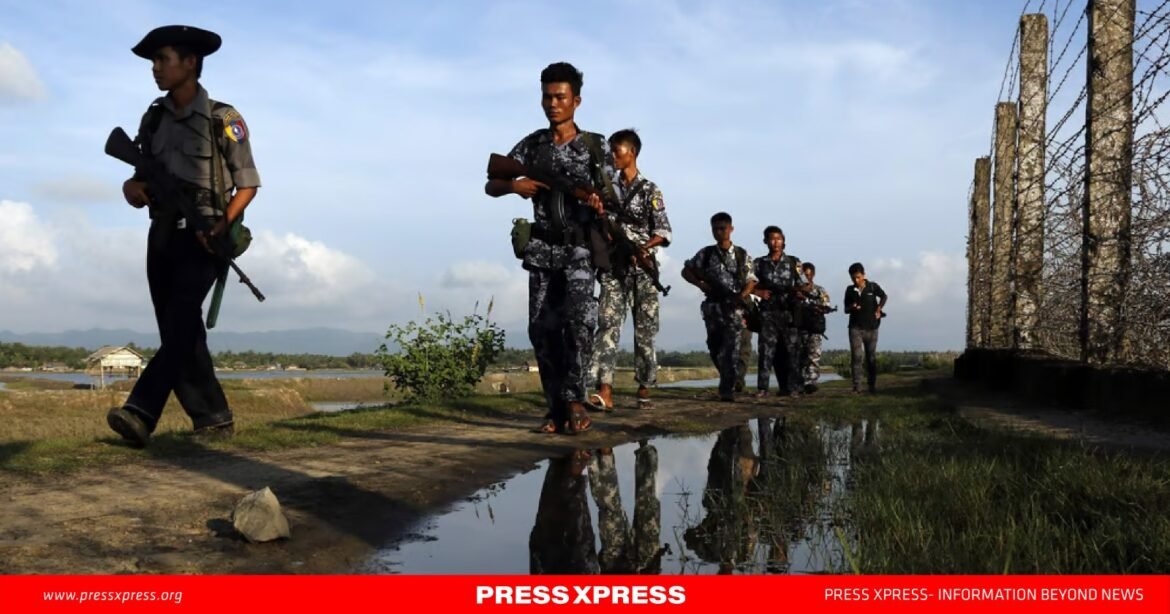The Arakan Army (AA), a separatist group that has gained significant territorial control in Myanmar’s Rakhine State, has alleged that jihadi groups are perpetrating violence against Buddhists near the Myanmar-Bangladesh border. The group also claims a troubling nexus between these militant factions and Myanmar’s military junta, further deepening the region’s instability.
Accusations of Violence and Militant Activity
The AA alleges that militant groups, including the Rohingya Solidarity Organisation (RSO), Arakan Rohingya Salvation Army (ARSA), and Arakan Rohingya Army (ARA), are operating from Rohingya refugee camps in Bangladesh. These groups have reportedly committed atrocities such as killings, kidnappings, rapes, and torture. The towns of Maungdaw and Buthidaung have been identified as the most affected areas.
A report by the Global Arakan Network (GAN) claims that some of these groups have links to global terror networks, including Al-Qaeda and Jamaat-e-Islami. The report also alleges that militants have manipulated the local population, using them as human shields and inciting violence against Buddhists and Hindus.
Additionally, the GAN report highlights the recruitment of child soldiers from Rohingya refugee camps. Children as young as six are allegedly being trained for combat, a practice that exploits the vulnerabilities of displaced populations and fuels the ranks of militant groups.
The AA has accused Bangladesh of tolerating the presence of these militant groups within its borders, alleging tacit support from Dhaka. According to the AA, Bangladesh’s security agencies are reportedly recruiting individuals for these groups in the hope of expediting the repatriation of over one million Rohingya refugees to Myanmar.
The AA further alleges that some militant groups are cooperating with Myanmar’s junta forces. This purported alliance between the junta and militant groups complicates efforts to stabilize the region.
Since seizing power in 2021, Myanmar’s military junta has struggled to maintain control over Rakhine State. The AA’s recent territorial gains, including full control of the 270-kilometer border with Bangladesh, have dealt significant blows to the junta’s authority in the region.
However, the AA’s consolidation of power has not alleviated the humanitarian crisis. Widespread displacement, food shortages, and destroyed infrastructure have left thousands of civilians in dire conditions.
Humanitarian Crisis
The prolonged conflict has left Rakhine State on the brink of collapse. According to the United Nations, up to 80% of housing in Maungdaw and surrounding areas has been destroyed. A military blockade has exacerbated the situation, preventing vital supplies from reaching displaced populations.
While the AA has pledged to establish a governance system inclusive of all communities, concerns remain about its treatment of the region’s Rohingya population. Relations between the ethnic Rakhine majority—the AA’s primary support base—and the Rohingyas have long been strained, and reports of forced displacements by the AA have raised further alarm.
Rohingya Caught in the Crossfire
The Rohingya population, still numbering around 600,000 in Rakhine despite the mass expulsion of 2017, faces an uncertain future. While some Rohingyas have expressed willingness to live under AA governance, others report forced evictions and targeted attacks.
Recent allegations include the use of AA drone strikes against Rohingya civilians, including women and children attempting to cross into Bangladesh. These incidents have deepened mistrust between the Rohingya and the AA, further complicating efforts to stabilize the region.
As the Arakan Army solidifies its control over Rakhine State, the allegations of militant activity and human rights abuses underscore the complexities of the region’s conflict. The interplay of local grievances, militant violence, and geopolitical tensions poses significant challenges for Myanmar, Bangladesh, and the international community. Addressing these issues will require sustained attention and a commitment to resolving one of Southeast Asia’s most pressing crises.


